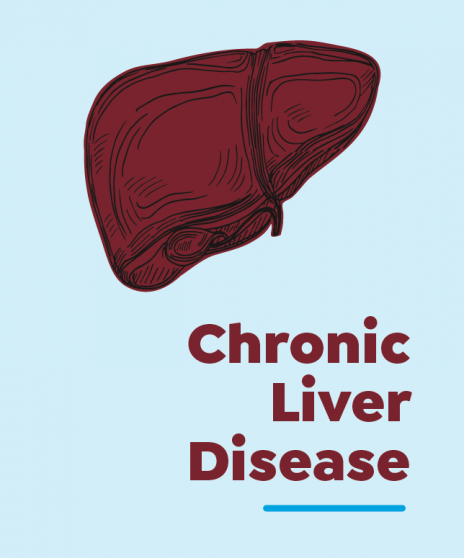Understanding Chronic Liver Disease and What You Can Do to Manage the Disease
What is liver disease?
The liver is a football-sized organ that sits just under the right side of your ribcage and is responsible for assisting in digestion and ridding the body of toxins. Liver disease can be hereditary or acquired, meaning it can be passed down through generations or it can be caused by external factors, such as illness, alcohol and obesity. If untreated, liver disease can result in liver damage, leading to liver failure, which is life-threatening. Fortunately, the liver is resilient and early treatment can allow the liver opportunity to heal.
What causes liver disease?
- Genes inherited from one or both parents can lead to build up of certain substances in the liver, resulting in liver damage.
- Infections, such as Hepatitis, can spread through the blood, contaminated food or water, or close contact with an infected person.
- Autoimmune disease can attack your liver
- Toxins, including drugs and alcohol
- Medications, including over the counter and herbal remedies
- Obesity
- Certain cancers
What are the signs of liver disease?
Sometimes, liver disease can be present without any noticeable signs or symptoms. Common symptoms of liver disease include:
- Yellowing of the eyes or skin
- Abdominal pain and swelling
- Swelling of the legs and feet
- Itchy skin
- Dark-colored urine
- Pale-colored stool
- Nausea and/or vomiting
- Poor appetite
- Bruising
How am I tested for liver disease?
- Blood tests, called liver function tests (LFT) can diagnose liver disease. Other blood tests can look for more specific liver problems or genetic risks.
- Imaging, such as ultrasound and MRI, can show liver damage.
- If your provider suspects liver disease, they may order a liver biopsy where long needle is inserted into the liver to take a small sample, which will be analyzed for presence of liver disease.
How do I treat liver disease?
Treatment of liver disease depends on the cause, type, and severity of disease. Some liver disease can be treated with lifestyle changes, such as alcohol cessation and weight loss. Other liver disease may be treated with medication or surgery. People with untreated liver disease or liver disease that has resulted in liver failure may be candidates for liver transplant.
How can I prevent liver disease?
- Vaccinate against hepatitis.
- Avoid risk-taking behavior, such as unprotected sex or intravenous drug use. It is important to avoid contact with other people’s blood or body fluids. If you are considering a tattoo or piercing, be sure to choose a reputable shop and be aware of their sanitary practices.
- Use medications, including over the counter and herbal remedies, only as prescribed, under the supervision of your primary care provider.
- Limit alcohol consumption to no more than one drink per day for women, two drinks per day for men. Heavy drinking is defined as eight or more drinks per week for women, fifteen or more drinks per day for men.
- Maintain a healthy weight as obesity can result in nonalcoholic fatty liver disease. Be sure to get at least 30 minutes of exercise most days of the week and eat a colorful, well-balanced diet.
- Use caution when handling household chemicals, like insecticides. Be sure to follow instructions carefully and always wear a mask and gloves when handling.

